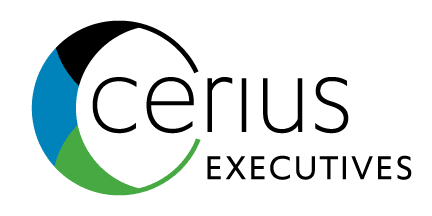Turning an Incredible Executive Career Into the Interim Career You Want: Selling Yourself Clearly and Consistently

Blog Series: Turning an Incredible Executive Career Into the Interim Career You Want
Part 1: Selling Yourself Clearly and Consistently
How do you fit a successful 20-40-year career into a two-page resume or a single conversation? The simple answer is, you don’t. By the time you become an executive, you’ve done so many things, it’s hard to convey it all without it becoming confusing noise.
What’s happening: Increased competition demands more differentiation.
Years ago, very few CEOs knew about fractional or interim executives—perhaps one person out of a hundred. Today, it’s a different story—with 50-70% of organizations now familiar with this option.
Because of increasing popularity, there are usually multiple interim executive candidates for every opportunity—as many as 5-10 professionals in the running. That makes it more important than ever to differentiate yourself, your value proposition, and the work you seek.
What’s required: Clear and consistent articulation—across all of your communication channels.
With multiple interim executives to choose from, why should an organization choose you? Whatever the answer, it needs to come through clearly and consistently.
5 Ways to Stand Out and Get the Opportunities You Want
1. Know your market segment and niche.
Being a “generalist” with executive experience across a number of markets and disciplines is great, but you’ll have a hard time competing against a candidate who promotes specific experience in a specific market niche. Try to segment your experience, define your discipline and identify your unique market niche.
For example, one interim executive specializes in strategy and coaching work, only working for companies planning to exit within five years. He customizes his fees specific to this type of company working on retainer plus a success fee for increased valuation.
2. Define the interim roles you want.
One executive wanted to be an Interim CEO, but the top five listings on his LinkedIn profile were board seats; and his resume highlighted experience as a full-time CFO. In other words, his primary marketing vehicles reflected what he had done in the past—not what he wanted to do in the future.
To grow your interim career, it’s smart to clearly state the interim roles and assignments you want, removing all ambiguity. Do you want a fractional/part-time role, which enables you to support a variety of clients, plus the consistency of ongoing work for a year or two? Do you prefer an interim role working full-time for one company for a set period of time? Or do you enjoy board or advisory work, being available to multiple clients on an “as needed” basis? Whatever your goal, make sure it’s specified.
3. Clearly state your value proposition.
Hone down all of your career experience into a single unique selling proposition (also called your unique value proposition). To help craft it, ask yourself:
- What are you “selling” (yourself)?
- Who are you selling it to?
- What challenges are you solving in the market?
- How do you do it better than anyone else?
- How do you help clients succeed?
4. Get good at delivering your “newspaper headline.”
When marketing yourself and what you offer, practice communicating it a compelling way, in as few words as possible. Think of a newspaper headline that grabs someone’s attention and entices them to learn more. It’s your “short summary” that appears on your LinkedIn profile and resume. People should read it and know instantly what you deliver.
5. Apply your message consistently.
Once you’ve clearly defined your market niche, the roles you want and your value proposition, it’s time to apply it consistently across your entire digital footprint—your resume, your LinkedIn profile, your website, and your bio on any thought leadership blogs. The more clearly you present yourself, and the less ambiguity about what you want, the more easily someone can zero in on you as the ideal candidate.
Want to keep growing your interim career? Stay tuned to this blog series for additional guidance to help you find and land the roles you want. Coming soon:
- October: Optimizing Your Resume, CV or Bio
- November: Leveraging LinkedIn
- January: Keys to Successful Interviewing


